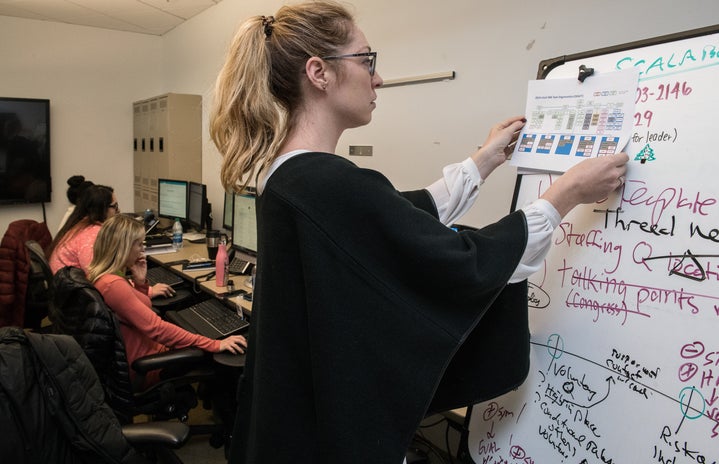During my 6:30 A.M. walk from my dorm to my car, I usually don’t see another human being until I get to the parking garage. Like me, everyone is carrying reusable coffee cups and forcing one foot in front of the other in an attempt to stay awake at a time when many people are still hours from having their alarms wake them up. Unlike me, many of these people are medical professionals, which means the work they’re about to do will ultimately result in a paycheck.
I came to college still on the fence about majoring in education. It had been my dream job since I was a small child, when I saw school as a magical land of learning and validation. As my years in school progressed, though, I watched as my classmates and teachers alike had their classroom experiences marred by disengagement or being overwhelmed, and my perception of school shifted to something more disquieting. For a while, I worried that as much as I wanted to make a difference through education, it wasn’t the dream career I first thought it would be, and I’d be better off investing my energy elsewhere. Between the overemphasis on test scores and the perpetual threat of gun violence, to name a few factors, I went back and forth on my decision for a long time before choosing to major in secondary education right before my second semester of college.
I’ve been lucky to have great professors, classmates, and observation experiences, but none of these things have been fully representative of the actual reality of teaching, which often involves low pay and more responsibilities than their job descriptions explicitly call for. Knowing that I’m willingly entering a profession that many are exiting is mentally taxing, and it has cast a shadow over my student-teaching experience. This isn’t helped by the fact that I’m essentially working a full-time job during my final semester of college, but I won’t receive any financial compensation. Where I should be solely focused on building relationships with my students and mentor teacher and learning how to give effective instruction, I’m forced to additionally navigate how to cope with not having a stream of income like I have in previous semesters.
Personally, I’m very privileged that I have a meal plan and live in a dorm that’s a short drive from my parents, who are willing and able to support me if the need arises. But what about the student teachers living in other circumstances? Those who have to support themselves and/or their loved ones, those who don’t have an external source they can turn to for financial support, those who don’t have the capacity to work a part-time job in addition to the full school days they must be present for? Both of my parents went back to school while raising their two children, and a situation like what is required of student teachers would have caused extreme difficulties for our family if either of them were subjected to it.
Those considering a career path in education are often pushed out by the prospect of upwards of a semester or an entire school year where not only are they unable to work, but they actually lose money that they have to pay in school tuition and fees for tests that are required for licensure. This impacts who is able to go into teaching, and in a profession that already has both a diversity problem and a retention problem, not to mention declining enrollment rates in education programs, this does not bode well for the future of the teaching profession.
So what can be done? In states like Michigan, programs are being introduced to provide daily stipends to student teachers as well as their mentor teachers. Other locations offer programs where tuition is free so long as the recipient agrees to teach locally for a set amount of time after they graduate. These are all great steps, but until there is national, fundamental change in how student teachers are compensated, the teacher certification process cannot be equitable, and the teacher shortage cannot be adequately addressed.


